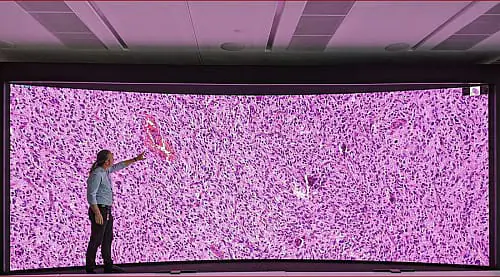IU + AI = Breast cancer breakthroughs?
INDIANAPOLIS (WISH) — The Indiana University School of Medicine is touting a new study that researchers hope will lead to better prediction and prevention of breast cancer. The effort leverages the resources of several noted institutions and the emerging field of Artificial Intelligence.
“We’re focused more on the prediction rather than the diagnosis, and being proactive rather than reactive,” says Spyridon Bakas, Director of the Division of Computational Pathology at the IU med school, in an announcement explaining the project.
According to the school, researchers here will work on a collaborative project with the Mayo Clinic, Washington University in St. Louis, the University of Pennsylvania, and Columbia University.
Unlike conventional scientific collaborations, though, IU says the new 5-year study will operate on a ‘federated learning’ format. Experts describe it as a method of ‘teaching’ AI using information from a number of locations and resources while keeping each part of the study completely independent of the others. In federated learning, each institution controls and keeps its own information instead of storing all of it in a central location, where it may be more vulnerable.
“Federated learning is a novel paradigm for multi-site collaborations like this, because it allows access to ample and importantly diverse data that are essential to developing robust models, without sharing patient data across sites, says Bakas. He contends protections inherent in federated learning can create more trust among patients and ease fears about others accessing their private information.
IU says funding for the study comes from a $3.7-million grant from the National Cancer Institute at the National Institutes of Health.
The study will look at data from patients who go through an increasingly popular cancer screening method called 3D digital breast tomosynthesis.
“The goal of our models will be to predict when and if a woman will develop breast cancer much earlier and assess their risk of developing breast cancer in the future,” Bakas explains.
